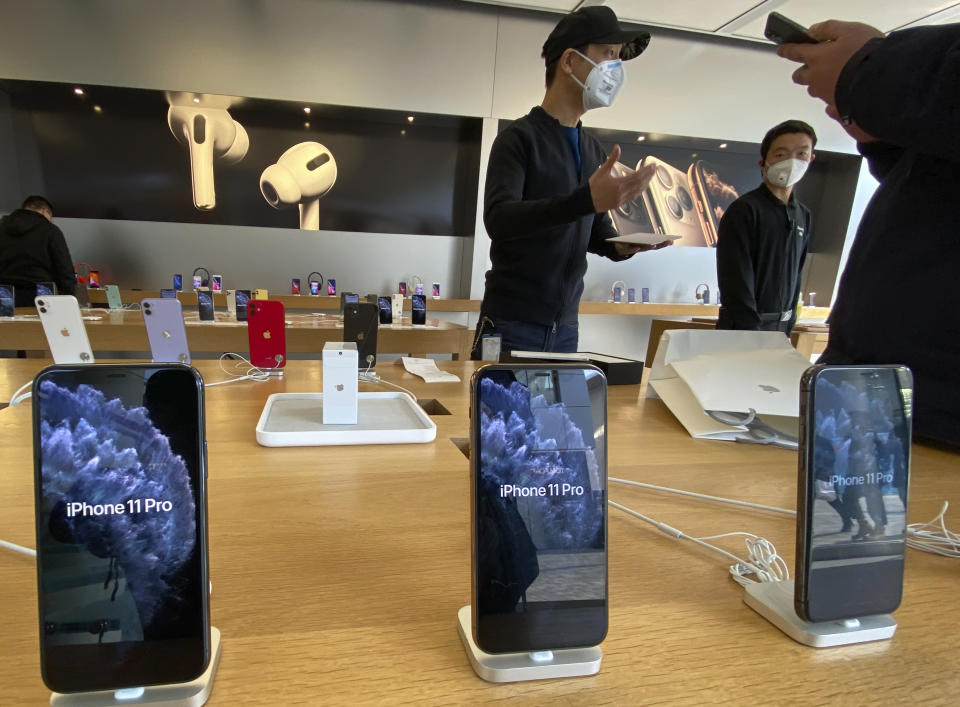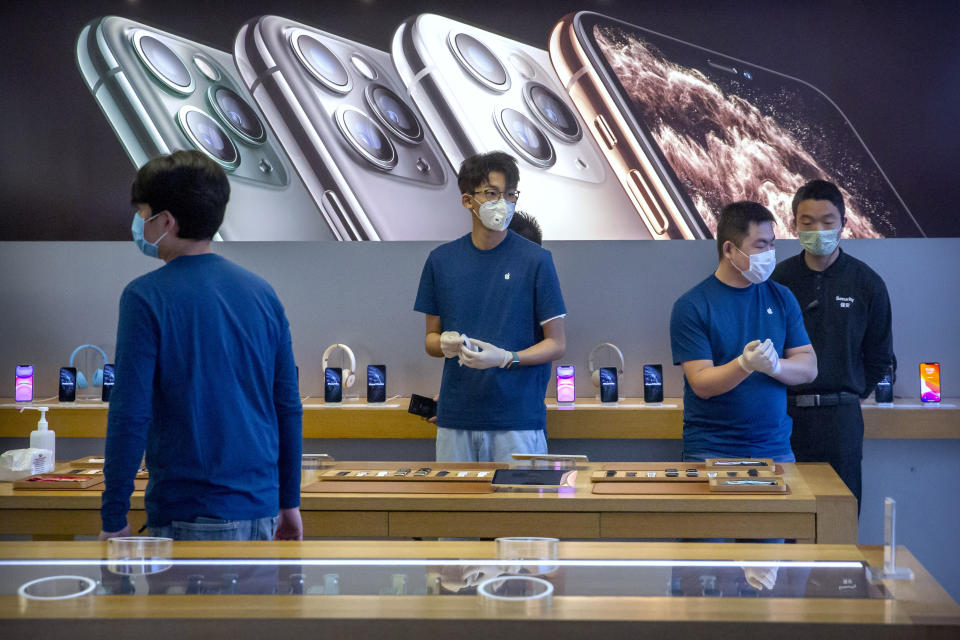Apple saw 'doomsday type' iPhone sales in China — but it's not the end for the tech giant
Apple is looking at a potentially unprecedented drop in iPhone sales in China amid the COVID-19 outbreak.
The company, which saw its stores in China shuttered and manufacturing partners idle their factories following the outbreak, shipped about 500,000 iPhones in China in February, according to Wedbush analyst Dan Ives, citing numbers from the Chinese government. That’s down from 1.27 million units in February 2019 — a massive drop that spells serious trouble in the near-term.
“These are doomsday type of iPhone units and overall smartphone sales which are not surprising given the essential lockdown that most of China saw during the month of February, with stores closed and the supply chain under massive pressure due to the coronavirus outbreak in the country,” Ives wrote in a note on Monday.
The drop isn’t unexpected, though. On Feb. 17, Apple issued a letter to shareholders saying it would miss its Q2 guidance, while choosing not to offer a new range for the quarter.

But despite how grim things look for Apple (AAPL) in the immediate future, the company’s next iPhone, set for a September launch, should be able to right the tech giant’s ship.
China will be a black eye
The Greater China region is Apple’s third largest revenue generator by region behind Europe and the U.S. In Q1 2020, the company saw $13.6 billion in sales in China, while Europe and the U.S. garnered $23.3 billion and $41.4 billion, respectively. But with the coronavirus kneecapping Apple’s manufacturing capabilities, those revenue numbers are unlikely to hold up, especially in China.
Apple is already warning Apple Store employees that replacement phone parts and devices will be in short supply for a number of weeks, Bloomberg reported last week.
During a Feb. 27 interview with Fox Business, CEO Tim Cook explained that Apple’s manufacturing partners in China are back online, and pushing to reach full capacity. But there’s still no word on when that will happen.
“As we have discussed, calling Chinese iPhone units during this unprecedented coronavirus outbreak is an impossible task with our expectations that units could be down well north of 50% year-over-year in the March quarter given the massive disruptions from the supply chain and especially demand in the region,” Ives wrote in his note.
It’s not just iPhone sales Apple has to deal with, though. Everything from iPads to Macs will also be impacted by the coronavirus outbreak. Even more troubling for the company is the hit to AirPods and Apple Watches. AirPods Pros, in particular, have been hard to come by since they were first launched in late 2019, and that’s unlikely to change anytime soon thanks to the virus.
Looking to the future
While Apple is sure to take a beating when it reports its Q2 earnings, the company, according to Ives, should be able to recover on the back of its upcoming product pipeline.
Specifically, a combination of millions of devices in the window of opportunity for upgrades, the potential for pent-up demand for the iPhone 11 caused by production shutdowns, and the upcoming iPhone 12, which is expected to be Apple’s first 5G iPhone, could result in a massive iPhone sales super cycle.

“While the supply chain issues and China demand shift are near-term fundamental headwinds, our primary focus is that the first part of this massive upgrade opportunity on the horizon with 5G leading the way should still be in the 215 million to 220 million unit range looking out to FY21,” Ives wrote.
There’s even the chance that Apple could move north of 231 million iPhones in fiscal 2021, which would be the company’s previous fiscal year sales record set in 2015.
One bright spot Apple could point to in its Q2 earnings is its services division. While the company is already expecting to see a drop in device sales, services could see a smaller impact, thanks to things like the iTunes Store, the App Store, Apple Music, and Apple TV+.
AppleCare numbers may not be what they could, as a drop in consumers purchasing hardware could hit sales of AppleCare plans, but the segment may offer the kind of bright light investors are looking for in what is expected to be an otherwise dark earnings report.
The key for Apple, however, is to ensure that the coronavirus impact is limited to the first half of 2020, and that when the iPhone 12 is ready to launch, it is able to meet demand.
More from Dan:
What you need to work from home during the coronavirus outbreak
Apple could still see historic iPhone sales despite coronavirus
Samsung Galaxy S20 review: A $1,399 smartphone with a massive camera
Got a tip? Email Daniel Howley at [email protected] or [email protected], and follow him on Twitter at @DanielHowley.
Follow Yahoo Finance on Twitter, Facebook, Instagram, Flipboard, SmartNews, LinkedIn, YouTube, and reddit.
